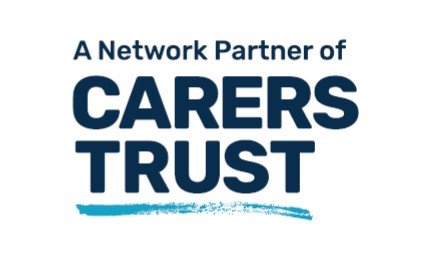Safe & Connected (the Council’s telecare service), provides a wide range of equipment that can help people to continue living at home independently and safely. It’s a good service for Carers to know about when they don’t live with their cared for person as it can provide confidence and peace of mind when they go out.
We have a summary of the service in our FAQs or see the new Safe and Connected website. Here is the link: Enfield Safe and Connected | Enfield Council
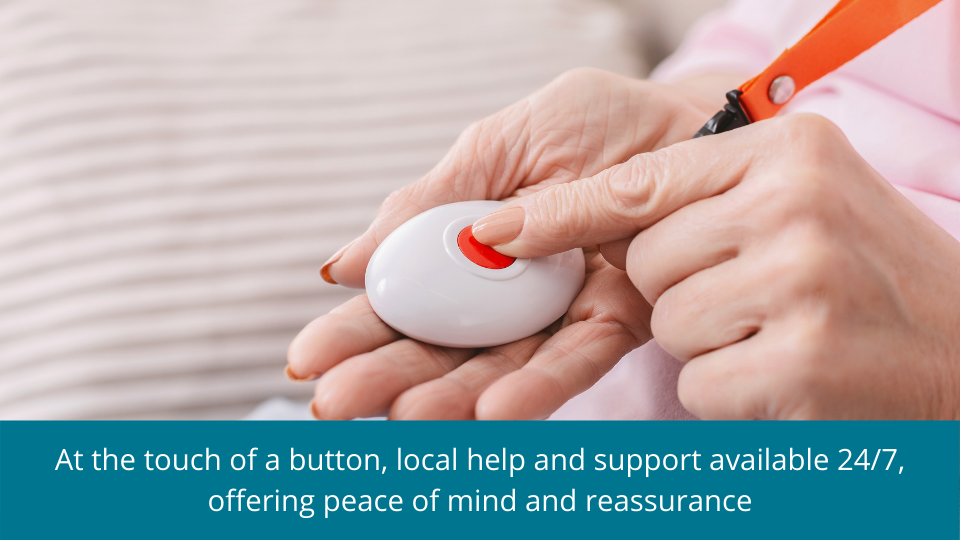
Safe and Connected is a 24 hour service providing round the clock support to people who may feel vulnerable.
You can find out more by watching this short film.
What is Safe and Connected?
Safe and Connected is a 24 hour emergency service run by Enfield Council. The service provides emergency support to anyone 18 and over who may feel vulnerable, have a disability, or a long-term health condition so that they can access help day or night to enable them to live safely and
independently in their own home.
Their aim is to enable people with care needs to have independence when they want it and also to support Carers by providing a large variety of equipment and digital tools that can making caring for someone easier.
How it Works?
An easy to use alarm unit can be provided with a choice of a lightweight pendant or wristband, including any other sensors required to meet health needs, which in an emergency can be activated to send an alarm call to a fully trained Safe & Connected Telecare Advisor via your telephone line. (Don’t worry if you don’t have a landline as sim enabled devices can be provided at no extra cost).
In an emergency, a Safe & Connected Response Officer or a nominated contact will attend the user’s home to provide the help needed as quickly as possible. Safe & Connected aim to respond to emergencies within 45 minutes if not sooner.
 Coordinate My Care | Urgent Care Plan
Coordinate My Care | Urgent Care Plan
Coordinate My Care is an NHS service that coordinates urgent care for patients.
Patients and their carers can record their wishes in their personal care planned called “MyCMC Plan”.
Did you know ?
You can now use the NHS Coordinate my Care to create an CMC urgent care plan for the person you are looking after, together with their doctor or nurse. It includes important information about their illness, how and where they’d like to be cared for and people to contact in an emergency.
What is CMC?
Coordinate My Care puts the patient at the heart of planning your urgent medical care: by making sure that their wishes are taken into account by everyone who will be looking after them.
You create a CMC urgent care plan, together with a doctor or nurse. It includes important information about someone’s illness, how and where they’d like to be cared for and people to contact in an emergency.
Then the information is shared with all the health professionals who might be involved in treating them, such as 111, your out of hours GP, the ambulance paramedics and the doctors and nurses in the Emergency Department.
So everyone knows what their diagnosis is, what they need, what they want, what their clinical team recommends, and in an urgent or emergency situation, everyone can take it all into account.
There is a an example of a patient’s view of a care plan with friends, family and healthcare professionals included.
How do I get started to create my CMC care plan for the person I am looking after or for myself?
Please see the CMC Patient Overview brochure to see what is involved with setting up the care plan.
The easiest way to create a MyCMC plan is using the Coordinate My Care website (Patients section). You can start, resume or view your own care plan from here.
They will need some personal information about the person whom the care plan is for, and their care preferences, and then their doctor or nurse will add the medical information we need.
You can do your bit all in one go, or in stages (your log-in details will remain active for a 28 day period, so we’ll keep what you put in, and you can come back and pick up where you left off during that time period).
You can do it on your own or with family and friends, in your own home, and in your own time. And you’ll find helpful videos on the site to guide you through the process.
For a full step-by-step guide, see this booklet for more help on how to set up your CMC personal care plan, online.
The link to the Patient Care Plan is : https://www.coordinatemycare.co.uk/for-patients/mycmc/
Always make sure you obtain consent from the person who’s medical information you share.
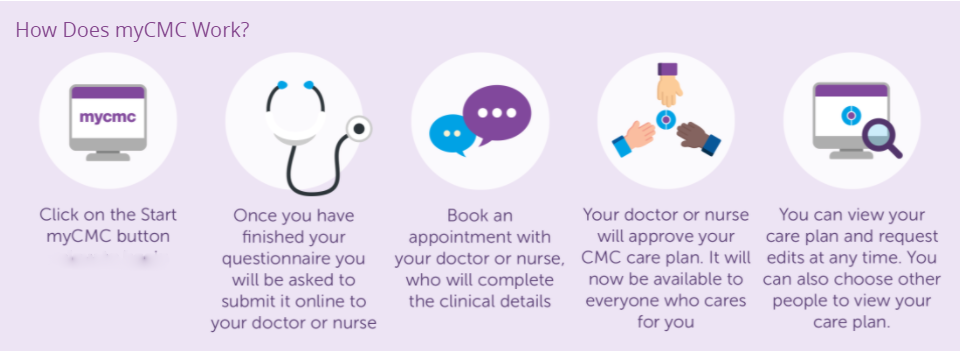
The London Taxicard Scheme gives subsidised rides to Enfield residents of all ages who have serious mobility problems or sight impairments.
This allows people with difficulty using public transport to get out and about in licensed taxis and private hire vehicles.
On the Enfield Council web site, search Concessionary Travel and London Taxicard Scheme.
- Form can be completed online for you or someone else.
- If you are applying for someone else, the form will ask for your details, then the applicant’s details.
- For filling in the form you will need date of birth and NI number of the applicant.
If your application is successful, the Council will require a photograph of the applicant.
They will contact you shortly after your application with details on how to upload this.
You will need to provide proof of identity, address and any benefits received by the applicant.
Some benefits or conditions automatically allow eligibility.
Enfield Council aims to process your application within twenty working days of receiving the information required.
Taxicard holders in Enfield can receive up to eight subsidised trips per month.
If you’re unable to complete the online application form, you can get help by visiting Enfield Civic Centre staff at Enfield Town or Edmonton library.
You can also contact Enfield Council’s Customer Services team on 020 8379 1000 to arrange for Concessionary Travel to call you to help complete the form.
If you are a Carer registered with Enfield Carers Centre we can help you to complete the forms. Call: 020 8366 3677 or email: info@enfieldcarers.org for more information.
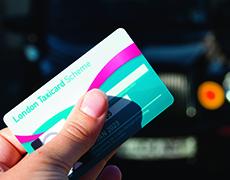
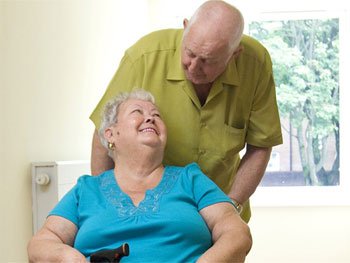
Visit the gov.uk site and complete the online form.
It is useful to have an email address that is regularly checked, as this is the quickest way for the Council to contact you.
Supporting documentation can be electronically attached by uploading from the computer on which you fill out the online form.
If possible, take photos of the required documents and transfer them to the computer you use for the form (email or plug in).
If you have a printer that can also scan, this is a good way to capture the documents.
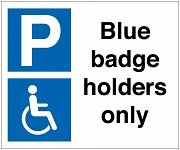 Read how a Blue Badge can be used in this pamphlet.
Read how a Blue Badge can be used in this pamphlet.
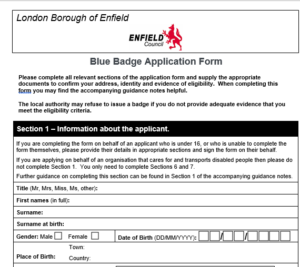 A Blue Badge costs £10 in England and usually needs to be renewed every 3 years.
A Blue Badge costs £10 in England and usually needs to be renewed every 3 years.
It can take 12 weeks for a decision to be made.
Contact Enfield Council for any questions or reassessments.
You will need:
- An electronic head shot photo of the person who will own the Blue Badge is also required to be uploaded.
- Proof of identity can be one of driving licence, passport or birth / marriage certificate
- Proof of address needs to be one of council tax bill or letter from a government department.
- Proof of any benefits e.g. PIP or DLA including the mobility assessment
You’ll also need to know:
- your National Insurance number (if you have one)
- the details of your current Blue Badge (if you’re re-applying)
- the medication for the person who will own the Blue Badge
- the names of medical professionals and clinics attended by the applicant
- the medical terms for the conditions suffered, ideally in correspondence from a clinic or medical professional.
Are you or the person you care for Eligible for a Blue Badge?
If you or they have:
Either: A physical diagnosis that means they are unable to walk short distances (0 to 80 meters, about 7 bus lengths); as they are physically unable to walk, experience extreme pain, server breathlessness or a high risk of falling.
Or: A cognitive/mental health diagnosis that means they lack danger awareness or have unpredictable behaviours that may cause risk to self or others, or experience significant psychological distress
And they have evidence of recent surgery, attendance at specialised clinics or a medical history of experiencing pain, breathlessness, falls, challenging behaviours and/or significant psychological distress to support application
Then they may meet the eligibility criteria.
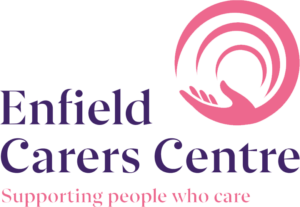
If you/your loved one meets the above criteria call Enfield Carers Centre on 020 8366 3677. If there is a reasonable chance the application will be successful, we will arrange for a member of our team to support you to apply.
If you/they do not meet the criteria, we will be unable to help you with an application.
There is also help available to complete online forms at the following libraries:
- Edmonton Green Library
- Enfield Town Library
- Ordnance Unity Centre Library
- Palmers Green Library
How to keep your Blue Badge safe
“Blue Badge companion permits” are available f that can be put inside a car when it is in disabled place outside a person’s house. It is proof of eligibility but useless to thieves.
You can apply for a Blue Badge Companion Permit from the Parking Shop in Crown Road, Enfield. You will need relevant documentation e.g. presentation of the Blue Badge, log book and a utility bill.
Look at the Enfield Council website for companion permits: Parking permits | Enfield Council
You can visit The Enfield Council Parking Shop Monday to Sunday, from 7am to 7pm or contact them on 020 3856 0036 (Monday to Sunday, from 7am to 7pm).
When parking elsewhere, you have to display the Blue Badge as usual, but you can buy a Blue Badge protector that locks onto the steering wheel, from car accessory shops e.g. Halfords.
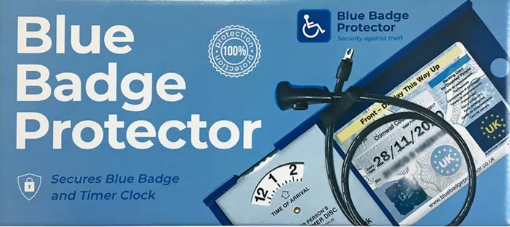
You can call the Enfield Civic Centre on 020 8379 1000 between 9am and 5pm, Monday to Friday.
You can call the Enfield Adult Social Care team on 020 8379 1001 at any time 24 x 7.
When someone you care for is in hospital, it can be a very worrying and stressful time. Don’t be afraid to voice your concerns to ward staff.
If you would benefit from having someone to talk to, there are a number of people who can help.
- Nursing staff or clinical team managing the person’s care
- The Patient Advice Liaison Service(PALS) or the hospital chaplain.
- The Discharge Nurse on the ward
- ECC’s Hospital Liaison Workers who can be called on : 0208 366 3677 or via email: healthcaresupport@enfieldcarers.org or hospitalsupport@enfieldcarers.org
- The hospital social work team
If the person you care for has a learning disability ask to speak to the hospital learning disability liaison nurse.
North Middlesex Hospital was the first hospital to introduce a Carers’ Passport scheme for Carers who are supporting vulnerable patients while they are in hospital, and who are regular visitors to the ward. They want to ensure you feel fully involved and supported by hospital staff in the care, treatment and discharge of the person you look after. Carers can also benefit from discounted parking charges and flexible visiting times.
Please read the carers’ information booklet, and ask a member of the hospital staff if you have an questions.
Enfield Carers Centre can provide you with support, advice and training when and after your loved one has been admitted or discharged. Click here for more information : Carers’ Basic Nursing Skills / After Hospital Discharge Training
We’ve also made a video to support you through the discharge process and advise you of what to expect. Click here to view Carers Hospital Discharge Video


Hospital Discharge
If the person you care for is in hospital you may be faced with important decisions. You may be considering taking on this caring role for the first time and don’t know what to expect. Or you may have already been caring for the person, but their needs have now increased or changed.
One important thing to remember is that it is your choice whether or not to take on a caring role. Think about the type and amount of support you are able to provide and what help you might need. For example, you may be able to help with shopping and meals but feel that you would both like someone else to help with personal care. It is important for you to consider how your caring role is likely to affect your life and wellbeing. The NHS website has some useful guidance here: www.nhs.uk/conditions/social-care-and-support-guide/care-after-a-hospital-stay/
An outline of the discharge procedure
Each hospital has its own discharge policy based on guidance from the Government. You can request a copy of the hospital’s discharge policy from the ward manager or from the Patient Advice and Liaison Service (PALS) department of the hospital.
Discharge planning starts as soon as the person you care for is admitted to hospital. It is important to let the hospital staff know as early as possible if you are a carer or thinking of taking on the role.
Should I, as a Carer, be involved in the discharge procedure?
The hospital discharge policy should emphasise the importance of involving you and the person you care for at all stages of discharge planning, so long as the person you care for consents to this.
Hospital wards can sometimes seem like busy or intimidating places and you may feel pressure from the hospital to get the person you care for home as soon as possible. The person you care for may be anxious to come home. However, it is important that you feel your views have been taken into consideration and that the person you care for is not being discharged before necessary support has been put in place.
In situations where the person you care for does not want you to be involved or be given information about their care, the hospital staff should be informed of this.
If the person you care for lacks mental capacity, you may be able to make certain decisions about health and welfare matters if you have a Lasting Power of Attorney (LPA). If there is no LPA, the law requires professionals to act in the ‘best interests’ of the person you care for and you should be involved in this decision making process.
What should happen before the person I care for is discharged?
When the person you care for is nearing their expected date of discharge the following steps should be taken:
- If you’ve told the team that you’re the patient’s main carer, ideally you should be involved in the plans for discharge and any after care.
- An assessment should be carried out to see if they are medically fit to be discharged.
- A discharge assessment should be carried out to see if they need support once discharged.
- A carer’s assessment should be carried out (or at least arranged), to see whether you as a Carer need support once the person you care for is discharged.
- A written care and support plan should be given to the person you care for (and a support plan for yourself if you have had your own Carer’s Assessment), which outlines the support required and how this will be provided.
- The support outlined in the care and support plan (for the person being cared for) and the support plan (for you) should be put in place.
Enfield Borough Council’s Access Team signposts individuals to Social Care and provides a Care Management Service to those with long term illness.
Address: Civic Centre, Silver Street, Enfield, London, EN1 3ES
Telephone: 020 8379 1001
Enfield Wheelchair Service
Enfield Wheelchair Service provides wheelchairs and associated equipment to adults and children living in Enfield who have no or reduced walking ability, a permanent or long-term medical condition, or a projected prognosis of six months or over. We provide a welcoming, tailor made service to meet the individual’s needs.
The service provides:
- Clinical assessment to consider physical, postural, social and environmental needs
- Provision of a wheelchair and equipment tailored to meet the assessed needs
- Full instruction and handover on the use, care, basic safety and maintenance of the equipment
- Access to an Approved Repairer who provide a repair, delivery, modification, planned maintenance and collection service
- Reassessment and review at the individuals request
Referral process
Initial referral to Enfield Wheelchair Service is via GP, Occupational Therapist or Physiotherapist. Once registered with the service, the individual is able to self–refer.
Related Services:
Telephone:
020 8379 8842
Email:
wheelchairservice@iwenfield.co.uk
Address:
Claverings 14 Centre Way, London N9 0AH
Opening Hours:
Monday – Friday
9:00am – 4:30pm
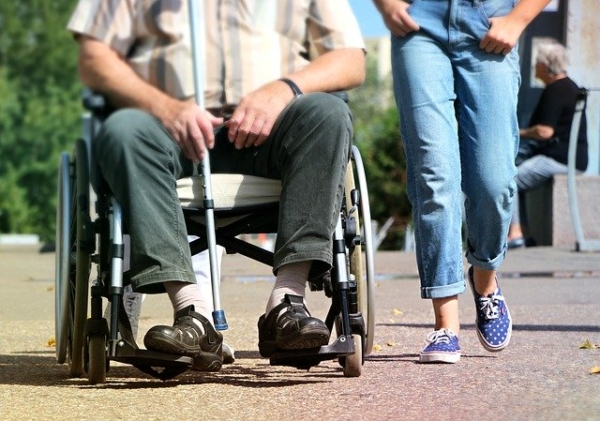
Emergency Care – Enfield Council
Unexpected things can happen to anyone and carers are no exception. You may get ill, need hospital treatment yourself or have an emergency family matter to deal with that means you’ll have to leave the person you care for a period of time.
If you have family members or close friends who can help cover for you while you’re unable to care then, with a bit of organising, you might find that this is workable for the period required.
However, if you’re caring for someone without the support of other people then Adult Social Services should be contacted to ensure that appropriate care continues to be provided should you not be available. Social Care Services are subject to charges depending on the financial means of the person requiring care; however, there is always a legal duty for social services to arrange care even if the costs of these would then be fully paid for by the person requiring care.
If you need the process, or your rights, explained to you, give Enfield Carers Centre a call.
Emergency Respite from Enfield Carers Centre
What Do We Pay Towards Social Care?
The amount that a person has to contribute towards their care, in Enfield, is calculated using a Contributions Policy. There are two policies one for if the person is receiving care in the community and another if they are in residential care.
Basically, a service user is allowed a Minimum Income, (the amount of which differs depending on age and circumstances), any costs directly related to their housing and an allowance for Disability Related Expenditure (DRE); any income in excess of this are considered available to be used towards social care contributions. At the time of writing if a person’s savings are under £14,250 then they are disregarded, for every £250 above this £1 a week is considered as income that can be used towards their contribution; if they have savings above £23,250 then they would be considered able to fully fund their own care needs.
Are the Carer’s Income/Savings Taken into Account?
No, it is only the service user’s means that should be considered when calculating contributions. If they have a joint account with another person then 50% of the money in that account would be allocated to them, unless it can be evidenced that the other person contributed more into that account and therefore the services user’s percentage should be reduced.
There are certain non-mean tested benefits that are not considered as income, such as mobility components of disability benefits; at time of writing Enfield does not consider the night care component as income. However, other benefits such as ESA, and the rest of care component of DLA, PIP and AA are considered income, which can be used towards paying for care.
If a person is in residential care then they are considered to only need a small allowance of money, most of their income would be considered available to be used towards care costs; if they own a property then the value of this will be considered also after 12 weeks of them being within residential care, unless there is someone still living in the property that falls within the category that allows the property to be disregarded.
Are there any other exemptions from paying contributions towards Social Care?
If the service user qualifies for Continuing Health Care (CHC), qualifies for Section 117 After-care under the Mental Health Act or has a diagnosis of Creutzfeldt-Jakob disease (CJD) then they do not have to contribute towards their social care.

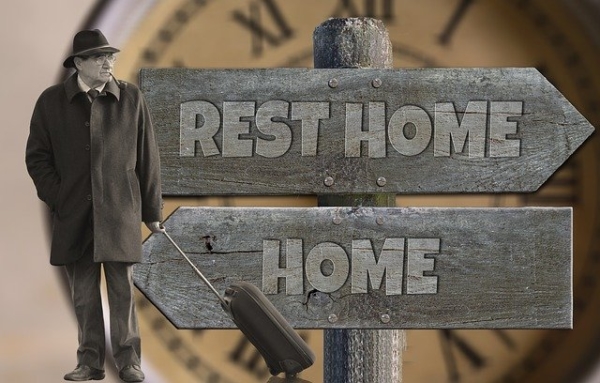
Continuing Healthcare is when a part of, or all of a person’s needs are medical rather than social, such as washing and dressing. They may then be eligible for NHS funded Care known as Continuing Health Care. Click here for full details: What is a Continuing Care Assessment?
How are decisions to award Continuing Health Care Funding made?
Initially, a small group of multi-disciplinary professionals, (a trained nursing assessor, social worker and usually a 3rd person such as a ward nurse/ residential home carer), use a Decision Support Tool (DST) to determine if CHC should be provided. The DST consists of a number of medical fields with descriptors detailing levels of need, these descriptors are strongly adhered to. These descriptors also have to be considered within medical terminology. If a person is completely bedridden they may score high, but not severe, this is because some people have injuries that mean they can’t be moved, at all, without risk, and it is this level that falls under the severe descriptor. People tend to believe that scoring high enough descriptors in a number of domains is how CHC funding is allocated, however, if the person’s care needs can be proven to be complex and unpredictable this should be adequate to argue for funding irrespective of the descriptors applied in the domains of the DST. The family are usually given an opportunity to voice their opinions but this is more to debate with the professionals why particular descriptors should be applied; if the family dispute an applied descriptor then this would be noted but would not affect the actual descriptors chosen, within the DST, by the professionals.
The meaning of the descriptors are medical in nature and cover a wide scope of disability. A person who is completely bedridden would score high but not severe needs in the mobility domain; the severe descriptor would be used in cases where the movement of a person could result in injury or death, such as a neck fracture. A person who has limited cognition would be considered compliant with medications if they took them without issue; regardless that they have no comprehension of what they are doing so are not actually agreeing in any way to being medicated or being instructed to take medications, which arguably is a more basic dictionary definition of compliance.
The first stage of appealing a decision not to award funding is to inform the Clinical Commissioning Group (CCG) that you do not agree with the decision; this can result in a review which in itself can sometimes be enough to lead to a change in the decision in borderline decisions. You will be allocated a Nursing Assessor who will meet with you and go over any evidence prior to appeal; if a strong case is made at this stage the decision could potentially be overturned.
If not an appeal can be raised to a local panel, usually held at the CCG, chaired by senior CCG, Social Care and Medical Professionals. If this is unsuccessful then there is a right to a further appeal to a regional panel.
Although families have a right to do this it would be hoped that they can bring strong arguments evidencing that incorrect descriptors had been applied or compelling arguments as to why nursing care needs should be considered more than merely incidental or ancillary to what the local authority would be expected to provide. Arguing that someone’s needs are a result of their health is not helpful and the focus should be on the nature of support required by the service user; when shaping an appeal and gathering evidence in support.
If considering making a challenge against CHC decisions it is advisable to seek specialist support, from organisations such as Beacon.
The first stage to get help from social services is to request a Needs Assessment, also known as a Community Care Plan. Referrals, you can self refer or ask a professional or friend to do it for you. This can be done by calling the Enfield Council Social Care Access Team on 020 8379 1001 or emailing adultsocialcare@enfield.gov.uk
To get support a person must meet an eligibility threshold, this means that they have a level of need that confers a legal responsibility on the local authority to provide services to help them.
If a person is self-funding, for example, has savings in excess of £23,250, then they can still ask social services for an assessment and to provide services, but they will be responsible for meeting all costs; this would also incur a one-off fee of £250 to cover administration costs. However, as the setting up of services would be performed by social services and they would review needs on a yearly basis. Many people may decide that paying this fee is worth doing.
How much can I get involved in a care plan?
A care plan is a person-centred process and so the views of the person you care for (who is known by the council as the “service user”) should be listened to and documented. Carers also should be involved in the process, where possible, as there should be no assumption that they will provide any aspects of care, but they can accept responsibility to meet specific needs.
A service user can make any reasonable request from social services but the main duty that social workers have is to meet any identified needs. If a social worker states a need can be met in a specific way, that the service user disagrees with, then requests can be made for a preferred service. However, if this costs more than the provision offered then there is no obligation for social services to provide a requested service just because it is preferable to the service user. In these cases, a direct payment would usually be offered, to the value of the service recommended by the social worker, which the service user can use to pay towards meeting their needs in the manner that they wish.
A carer can express their views, however, the social worker’s role focuses on meeting the needs of the service user. If a carer disagrees with what a service user has requested this would normally have little bearing unless the service user has substantial difficulty when communicating or lacks capacity; in these cases, an advocate should be provided to support the service user through the process.
The person I care for needs to move to somewhere safer. How do I find out about care homes?
Enfield Council produces a directory of care homes each year which includes information about different homes in the borough and gives details of websites with information about services including care homes. Ask at Enfield Carers Centre for a copy of the directory or visit the Council’s website for more information.
Enfield Carers Centre hosts a bi-monthly Carers Care Homes Network for carers who are either thinking about care homes or who look after a relative who’s living in residential care.
It is always advisable to ask for a Social Services Community Care Assessment prior to making a decision about a move for the person you care for because you may find out about other options available to you and the person you care for.
To request an assessment for the person you care for call 020 8379 1001.


